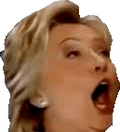The way I understand the way Marx is using "qualitatively different" is both in its obvious form, gold and silver (as simple commodities) are different from one another, but importantly that it is about qualitatively different forms of private labor confronting each other in exchange. If I am spinning, weaving and tailoring my own coat, neither the wool, thread, linen, or coat confront each other as commodities in exchange even if they each have a use-value, but once you have a division of labour, those use-values can confront each other as commodities in exchange.
(I'm struggling to word a more specific example when considering gold and silver as commodity-money, so may be someone can jump in with that.)
The rest of the quote you posted seems to get into this.
In a society whose products generally assume the form of commodities, i.e. in a society of commodity producers, this qualitative difference between the useful forms of labour which are carried on independently and privately by individual producers develops into a complex system, a social division of labour.
and another in the paragraph before:
“The totality of heterogeneous use-values or physical commodities reflects a totality of similarly heterogeneous forms of useful labour, which differ in order, genus, species and variety: in short, a social division of labour. This division of labour is a necessary condition for commodity production, although the converse does not hold; commodity production is not a necessary condition for the social division of labour. [...] to take an example nearer home, labour is systematically divided in every factory, but the workers do not bring about this division by exchanging their individual products. Only the products of mutually independent acts of labour, performed in isolation, can confront each other as commodities.” p 132 (Fowkes)
This last part is interesting to me when you think about how large firms operate even today. If a single firm produces multiple of its own inputs and outputs, they do not actually confront eachother as commodities (in a market). As an aside, one of the more compelling arguments against the ECP has been its own critics inability to determine exactly where it becomes impossible to calculate production as one firm gobbles up another firm which produces its own input.
 HER TIME IS NOW
HER TIME IS NOW 
The world if we had networked communism